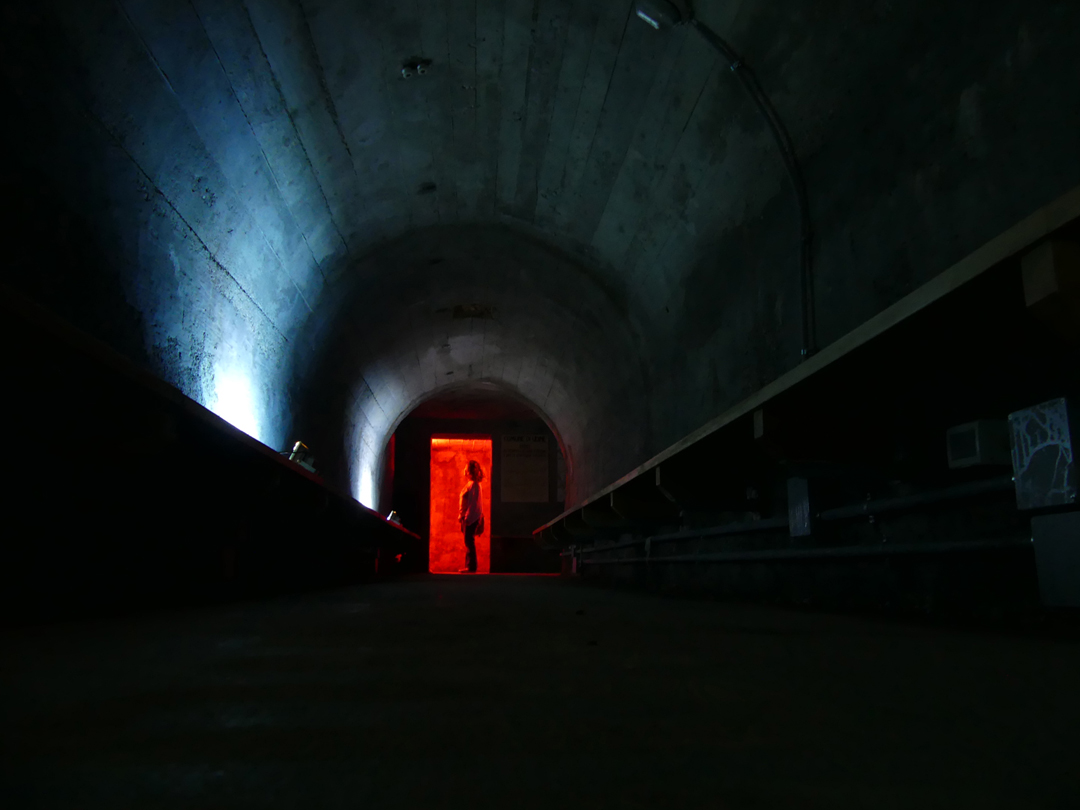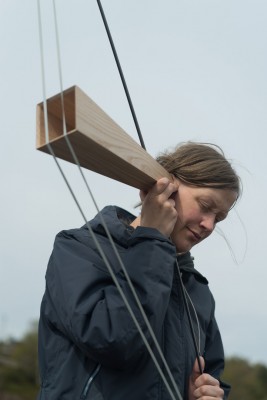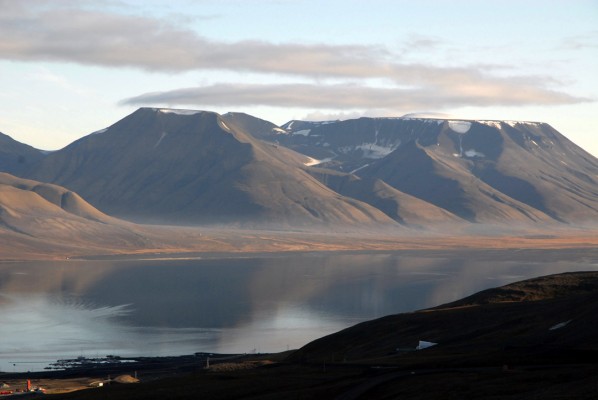
LUOGO
rifugio antiaereo del giardino del Torso
via del Sale 23
ORARI DI APERTURA
da giovedì a domenica dalle 15 alle 19
INAUGURAZIONE
sabato 3 giugno ore 16
Signe Lidén
TINES
installazione sonora per 4 altoparlanti – 2017
Nell’autunno del 2011 Signe Lidén ha trascorso tre mesi nell’arcipelago norvegese delle isole Svalbard. Le isole Svalbard si trovano nel mare artico, posizionate tra i 74 e gli 81 gradi di latitudine nord e sono le terre abitate più a nord del pianeta. In quel luogo l’artista ha raccolto interviste e registrazioni d’ambiente per un progetto chiamato The Cold Coast Archive tutto centrato sulla banca dei semi che il governo norvegese ha costruito in quelle terre remote.
La banca dei semi o Global Seed Vault è una struttura finanziata dalle più importanti fondazioni mondiali per preservare e prevenire l’eventuale estinzione di piante e colture vitali per il pianeta e per la biodiversità in seguito a possibili catastrofi su larga scala quali il riscaldamento globale o una guerra nucleare. È costruita con porte di massima sicurezza resistenti alle esplosioni, scavata nella roccia dell’entroterra per garantire una temperatura stabile all’interno del permafrost e ad una altitudine che possa garantire la salvezza delle sementi conservate anche in caso di terremoti e inondazioni dovute al possibile scioglimento dei ghiacciai.
I suoni utilizzati per comporre questa audio installazione provengono dalle registrazioni effettuate dall’autrice all’interno del Global Seed Vault.
«Pochi anni dopo l’apertura del Global Seed Vault sono stata invitata dall’artista e ricercatore Steve Rowell a collaborare ad un progetto dedicato a quella struttura. La mia prima reazione è stata: come e perché realizzare un’opera d’arte su un progetto che di per sé ha già un grande potere evocativo oltre che una missione così importante?
Il pensiero a lungo termine insito nell’idea stessa della banca dei semi mi affascina. Un luogo che ha a che fare con un futuro non identificato che si protende verso l’infinito. Quando le persone ne parlano o lo descrivono, spesso usano termini biblici – la chiamano ad esempio “la banca del giorno del giudizio” o “l’Arca di Noè”. Vedono il futuro come un’estensione di noi stessi, parlano delle future generazioni e dei figli dei nostri nipoti riuscendo a relazionarsi con un tempo astratto e irraggiungibile.
Se potessimo diffondere il pensiero a lungo termine saremmo dunque in grado di realizzare azioni responsabili per un futuro sostenibile sia come individui che come società? E come fare per trasmetterlo agli altri?
Forse un linguaggio che parla innanzitutto ai sensi e alla coscienza sensibile potrebbe in un secondo tempo sviluppare il nostro istinto o generare un senso di responsabilità comune?
Facendo queste considerazioni ho pensato che ascoltare il suono del Global Seed Vault potrebbe essere un buon punto da dove cominciare.»

Signe Lidén – photo courtesy of the artist
Signe Lidén vive tra Bergen e Amsterdam. Da anni lavora esplorando le risonanze dei panorami artificiali, delle cavità e del sottosuolo, indaga i luoghi e le loro storie nella fantasia e nella memoria collettiva attraverso narrazioni, testimonianze, riflettendo sulla relazione con il tempo.
La sua ricerca artistica si concentra sui rapporti tra un luogo e la sua storia, sulle domande che evoca, su come esso ci riguarda. Lidén spazia dalle installazioni sonore, alla costruzione di strumenti musicali a forme più documentali come saggi sonori e archivi. Le sue installazioni sono spesso composte da registrazioni d’ambiente raccolte in luoghi specifici e con oggetti scultorei.

PLACE
anti raid shelter at
Giardino del Torso
Via del Sale 23
OPEN ON
From Thursday to Sunday 3 – 7pm
INAUGURATION
Saturday June at 4pm
Signe Lidén
tines
sound installation for 4 loudspeakers – 2017
In the autumn of 2011, Signe Lidén spent three months in the arctic archipelago Svalbard making field recordings and interviews for The Cold Coast Archive, a project exploring the Svalbard Global Seed Vault. The seed bank stores duplicates of samples held in seed banks worldwide and provides insurance against extinction in case of large scale regional or global catastrophes. The facility is built to be far enough below the ground to guarantee stable permafrost and high enough above the sea level to be secure from any rise of the sea level as a result of global warming, nuclear attack, or earthquakes.
«A few years after The Global Seed Vault had opened, I was invited by artist and researcher Steve Rowell to collaborate on a project about it. My first reaction was: why and how to make an artwork about a project that itself embraces such great ideas and is located on a place that itself triggers imagination?
Long term thinking embedded in the very idea of the vault interested me. It is a place dealing with the unspecified future that stretches into eternity. While reading articles about the arctic seed vault I noticed that whenever its aspect of time was mentioned, writers turned to vocabulary from religion–most frequently it was nicknamed “the doom days vault” or Noah’s Arc. The future was described as an extension of ourselves, like in “our next generations” or in “the time of our grandchildren’s children”, attempting to relate abstract time zones to ourselves.
If we would develop the vocabulary of long term thinking, do we become more capable of taking responsible actions for a sustainable future both as individuals and society? If so, how? Perhaps by developing a language which primarily speaks to the senses, to the sensing-knowing, and later would develop to our instinct or even common sense? Challenged by this thought, I figured that listening to the seed vault could be a good place to start.»
Signe Lidén is an artist based in Bergen and Amsterdam. Her works explore man-made landscapes and their resonance on multiple levels–in memory and matter, through narratives and as ideological manifestations.
Her artistic endeavors focus on relations between place and history yielding questions of what is history and how it affects us. Lidén’s work ranges from sound installations, performance and instrument building to more documentary forms such as sound essays and archives. Her installations are often composed of sound recordings from specific places and sculptural objects.
Lidén´s most recent work Vertical Studies: Acoustic shadows and boundary reflections (2017) is a collaboration with Espen Sommer Eide and was realised at the Sonic Acts Festival (Amsterdam) and Borealis festival (Bergen).
She made the performance Altitude and History (2016) and krysning/пересечение/conflux (2014) for the Dark Ecology project in Nikel (Kola peninsula), the installation series Writings for the Resonance, European Sound Art Network, (2013-14), and collaborated with Steve Rowell and Annesofie Norn on The Cold Coast Archive(2010-12), a project on the Global Seed Vault launched at the Centre for PostNatural History. She was commissioned to make works for Volt, Hordaland Art Center, Kunsthall Oslo and Ny Musikk, Touch Radio, and Interferenze New Arts Festival among others.
